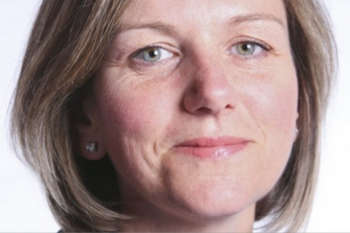A senior MP has accused Chris Grayling of being ‘less than candid’ with her committee after a National Audit Office (NAO) report disclosed that he exaggerated the known benefits of new trains as an alternative to cancelled electrification projects.
Mr Grayling was found to have held off on making decisions public until after the General Election and to have made claims about the benefits of his alternative options that could not be backed up, not least because the 'technology does not exist'.
The NAO report on the Government’s decision last July to cancel three electrification projects found that it is too early to tell the extent to which the Department for Transport (DfT) will be able to deliver the benefits of electrification without the three schemes.

Lilian Greenwood MP
The report notes that Mr Grayling decided to cancel the projects - the Midland Mainline north of Kettering; the Great Western Main Line between Cardiff and Swansea; and the Lakes Line between Oxenholme and Windermere – in March 2017 but that prime minister Theresa May wanted to see an update of the economic case for the South Wales scheme before deciding whether to drop it.
Although the cancellation of the other two projects had been agreed, this decision was kept under wraps until after the General Election last June.
The NAO also reveals that although Mr Grayling announced all three cancellations in July 2017, ‘he specified that the next operator for the East Midlands franchise would deliver new bi-mode trains from 2022’, when in fact his officials had advised him four months earlier this was unlikely to happen as the 'bi-mode rolling stock of the required speed and acceleration to meet the timetable of the route did not currently exist’.
Although Mr Grayling presented the decision to cancel the three projects as based on the availability of alternatives that would make the inconvenience of major works unnecessary, the report puts the decision in the context of Network Rail’s anticipated shortfall during the 2014–2019 rail investment period.
It notes that the DfT estimated in March 2017 that by cancelling the schemes it would save a maximum of £105m during that period but ‘avert £1,385m of spending’ in the period 2019–2024.
It also points out that the DfT has not yet fully costed the environmental and future financial implications of its decisions on Midland Mainline and Oxenholme to Windermere.
It states: ‘It is uncertain about how much the new trains will cost, but in October 2017 the Secretary of State told the Transport Select Committee that completing electrification would “be more expensive” than buying other trains’.
Transport Committee chair Lilian Greenwood said: ‘This report … is frustrating because it shows the secretary of state took the decision on the Midland Mainline in March 2017. He failed to mention it to the wider world, not just until the General Election was over, but until the last day before recess in July.
‘It is frustrating because it shows the secretary of state was less than candid with the committee when we sought to investigate this during our evidence session last October. Even when the committee recalled him in January, we did not get the full story. This report confirms we were right to be worried about the decision-making process and the openness and transparency with which the Department and the secretary of state have presented their case.
‘But it is especially frustrating for passengers. The report confirms that the Department has not yet fully costed the environmental and future financial implications of its decision on Midland Mainline and Oxenholme to Windermere. I believe this should have been considered before the decision to cancel was made.
‘The secretary of state promised my committee that completing electrification would “be more expensive” than buying bi-mode trains which deliver the same passenger benefits. He said this knowing the technology does not exist. We will watch developments on this closely so we can hold the secretary of state to account as he tries to deliver the promises he has made.’
A DfT spokesperson said: ‘We are spending billions of pounds across the country to deliver faster, more frequent, and more comfortable services with more seats.
‘As this report makes clear, we are focused on delivering better trains and services to passengers more quickly, at better value for money for the taxpayer, without the significant disruption to services that electrification can cause.’
Register now for full access
Register just once to get unrestricted, real-time coverage of the issues and challenges facing UK transport and highways engineers.
Full website content includes the latest news, exclusive commentary from leading industry figures and detailed topical analysis of the highways, transportation, environment and place-shaping sectors.
Use the link below to register your details for full, free access.
Already a registered? Login